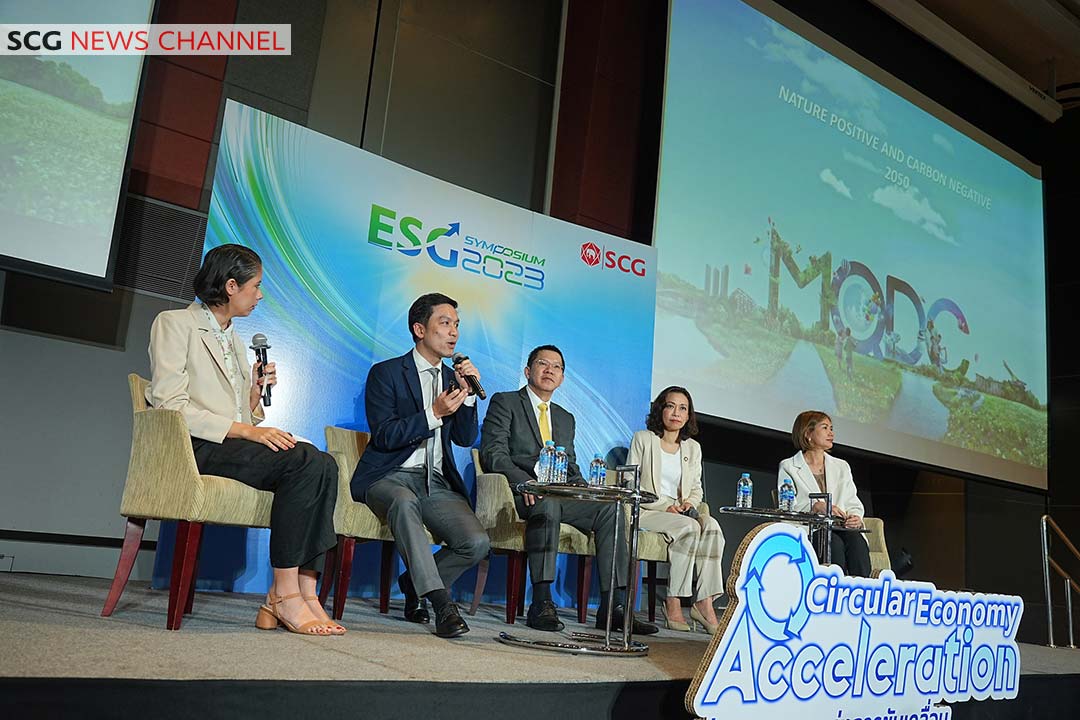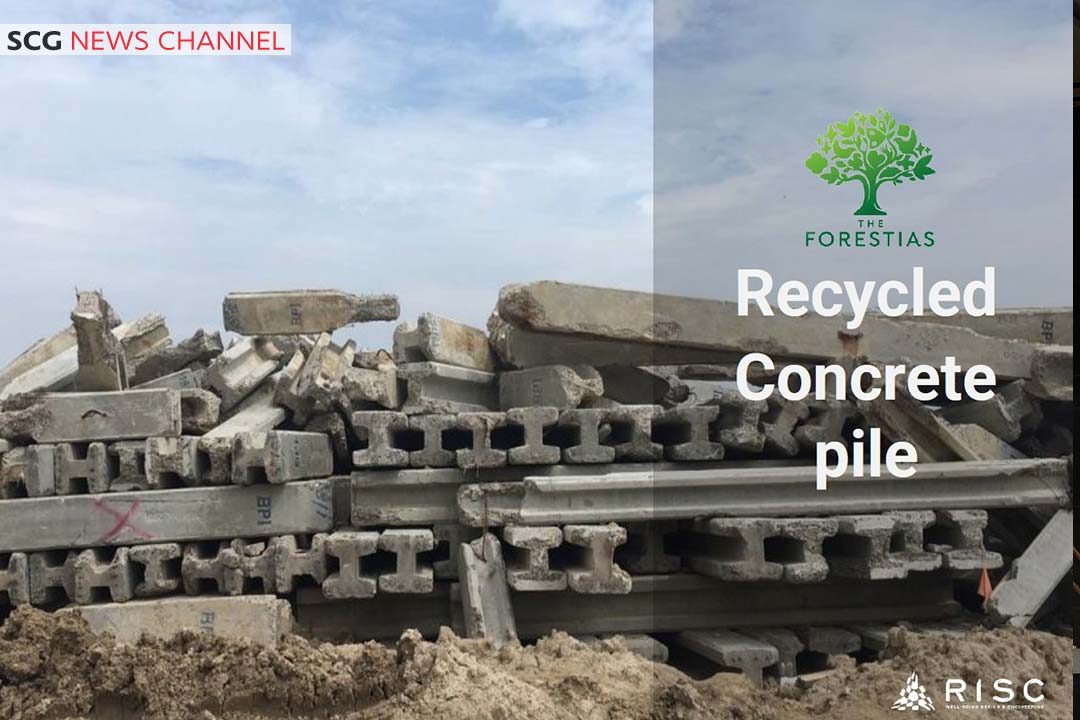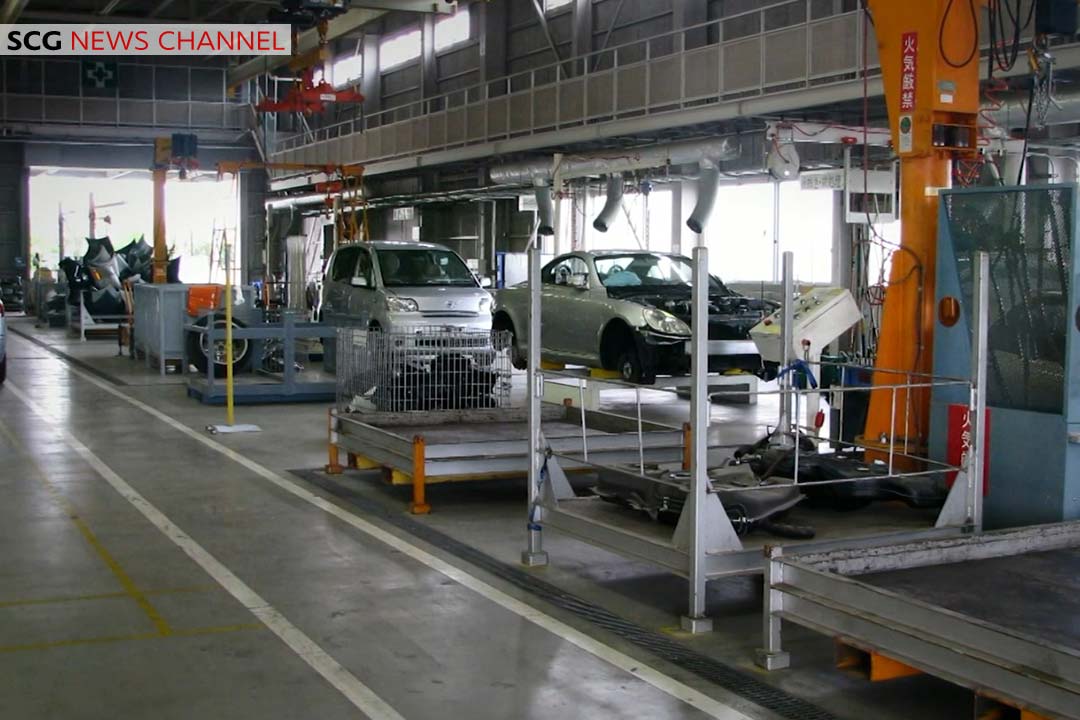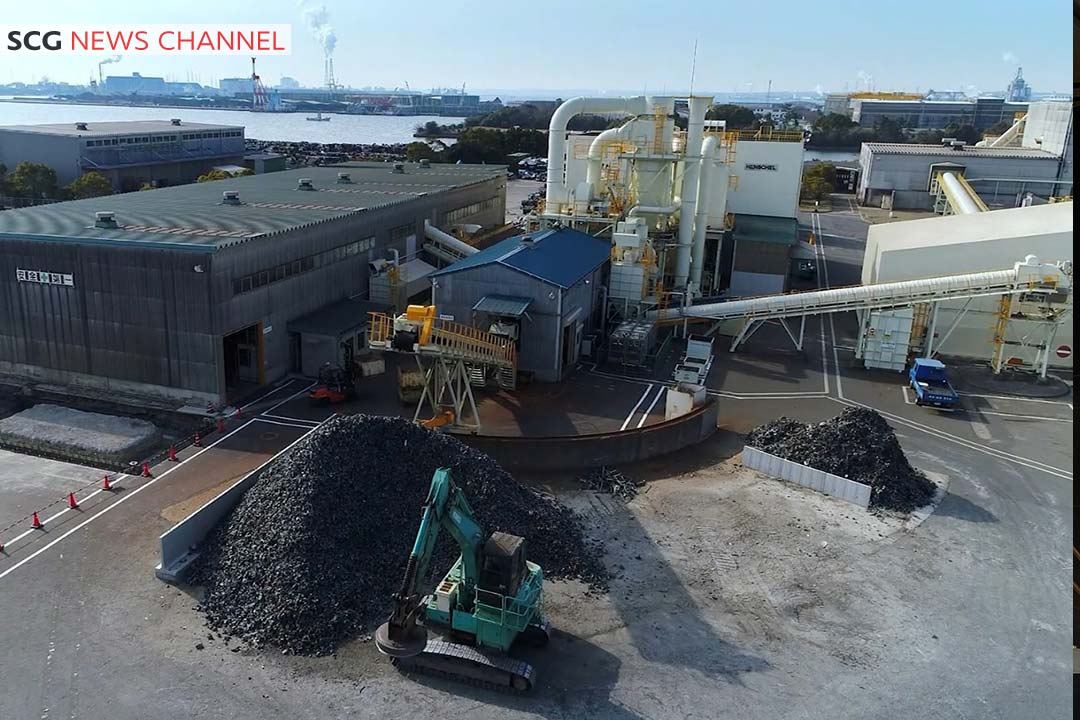From global warming and climate change to now global boiling, these conditions have resulted in more extreme climate fluctuations, floods, droughts, violent storms, and so on. These changes adversely impact biodiversity, food security, and the capacity to compete. It is an urgent matter that all sectors of society must urgently address before it becomes too late. Negotiation on this issue is no longer viable.
Many sectors have already begun taking action to “combat the global boiling crisis.” This is evident in events such as the ESG Symposium 2023, where the private sector, especially the “three key industries,” has shown dedication in adapting their operations to foster a low-carbon society in Thailand. These industries are the packaging industry, the construction industry, and the automotive industry.
The “three major organizations” associated with the said key industries are Nestlé (Thai) Co., Ltd., Magnolia Quality Development Corporation Limited (MQDC), and Toyota Tsusho (Thailand) Co., Ltd. Collectively, they have shared lessons on fostering a circular economy, mitigating the impacts of global warming, and ensuring sustainable business growth.
“If we do not collaborate to take actions, our businesses may not survive. This is because the impacts of climate change will make it impossible for us to source raw materials for product manufacturing. This is something businesses need to be aware of,” revealed Salinla Seehaphan, Corporate Affairs Director, Nestlé (Thai).
A global food and beverage company with business operations in 188 countries, Nestlé has set a goal to achieve net-zero greenhouse gas emissions by 2050. This is to be accomplished through actions throughout their value chain, which require evaluating their carbon footprint, encompassing everything from agricultural raw material sourcing to packaging before it reaches the consumer’s hands.
“The carbon emission measurement of Nestlé, based on the baseline year (2018), reveals that Nestlé worldwide emitted 92 million tons of greenhouse gases. The primary source of these emissions, ranked first, came from agricultural raw materials such as from cattle farming, as the company uses dairy and cocoa products. The second-highest source of greenhouse gas emissions stemmed from packaging.”
Corporate Affairs Director of Nestlé (Thai) said that to reduce greenhouse gas emissions from packaging, Nestlé has embraced the concept of a circular economy. Nestlé focuses on two main areas: 1. Packaging should be recyclable from the beginning, aiming to achieve as close to 100% as possible, and 2. Reducing the use of virgin plastic in production. Nestlé worldwide has set a goal that one-third of plastics used should come from recycled plastic by 2025.

Currently, for its operations in Thailand, 95% of the packaging is recyclable, which includes even ice cream wrappers. The mineral water brand “Minere” has recently introduced bottles made from recyclable plastic ( rPET), marking it as the first drinking water brand in Thailand to achieve this.
“I want to say that no one gets these initiatives perfect from the start. To reach where we are today, it has been a journey filled with trials and errors. We see this as an ongoing learning process while taking actions. Because when it comes to climate change, there are always new challenges. It’s not about what we ‘should do’ but rather what we ‘must do.’ It requires a collective effort to create a bigger impact. When an organization takes a step, the consumers or the market need to respond. If consumers do not react positively, the circular economy will not take off. At the same time, the law must support actions in these areas,” said Salinla.
Recycling Construction Materials and Boosting the Circular Economy
The “construction industry” is a significant contributor to greenhouse gas emissions. Naphat Suphattanakul, Senior Vice President of MQDC, highlighted the urgency of addressing global warming, a matter that touches everyone. The company has set a target of “Nature Positive Carbon Negative” by 2050. He provided data showing that 40% of all materials and waste stem from the construction industry globally. Furthermore, 40% of global greenhouse gas emissions arise from construction-related activities, particularly from the production of concrete and steel. This requires a collaborative effort within the construction sector to mitigate this issue.
MQDC has actively engaged in “recycling construction materials,” aligning with the principles of the circular economy. The company has recycled concrete piles and used plastic waste to produce plastic asphalt for paving roads in some of its real estate development projects.

“When driving piles into the ground, a significant number of pile heads are cut off and discarded. These used to contribute to the 40% of construction waste. We found a way to reuse them by grinding and incorporating them back into concrete production, reducing this type of waste by 200 tons. The plastic asphalt road initiative has utilized up to 12 tons of plastic waste. These are achievements in the circular economy. However, the costs remain high as we are among the few doing this. In the future, if property developers collaborate on this front, it won’t just be about concrete but also cement bags and other construction materials; the scale will be larger. This will make waste management in the construction industry more efficient and cost-effective,” said Naphat.
Additionally, in the bid to mitigate global warming in the construction sector, sourcing non-cement materials is an option. Specifically, “wood,” which emits fewer greenhouse gases than concrete, is a viable alternative. Thailand has fast-growing trees that are cultivated for economic purposes. With appropriate legislation and enticing tax incentives, he believes this could “accelerate” the positive change.
Mitigating Global Warming: New Business Opportunities in the Automotive Industry
In the case of “the automotive industry,” Mr. Sujit Panvongpaiboon, Executive Vice President of Toyota Tsusho (Thailand) Co., Ltd., shared an interesting perspective that collaboration in global warming mitigation across all sectors will lead to new business opportunities and drive the circular economy. For example, the management (recycling) of end-of-life vehicles, which are estimated to reach a significant number of 21 million vehicles (internal combustion engine vehicles and EVs) in the next ten years and will need to be taken out of the traffic system (exceeding ten years of usage). If these vehicles are not handled properly, it will contribute to global warming.

“This number is quite alarming because environmental problems will follow. As cars get older, deteriorating engine systems will emit more carbon dioxide. Meanwhile, maintenance of old cars is costly. Japan, for example, has been successful in car recycling, as up to 99% of materials, such as steel, aluminum, plastic, and ferrous metals, can be completely recycled. Even airbags (containing difficult-to-dispose chemicals) can be recycled up to 95-96%. Therefore, Japan is considered a country that effectively addresses pollution from end-of-life vehicles.” Mr. Sujit revealed.
In Thailand, the company has received support from Japan’s New Energy and Industrial Technology Development Organization (NEDO) in implementing the management of end-of-life vehicles. Green Metals (Thailand) Co., Ltd. can recycle 500 units of old cars per month (20,000 metric tons of materials recycled per month), which is still a very small number compared to the volume of end-of-life vehicles that will emerge in the future.
However, there are still operational issues. The question is who should be responsible for the expenses of recycling old cars: whether it should be car manufacturers, car owners, or other stakeholders in the supply chain. At the same time, regulations are complex and overlapping, involving multiple agencies. They should be centralized to facilitate a transition for the energy-related industry in a concrete manner.

Panrat Phechpakdee, Senior Vice President of the Federation of Thai Industries and Director of the Thailand Institute of Packaging and Recycling Management for Sustainable Environment, mentioned that the institute has worked on packaging management for over 17 years. Through her experience, she has observed that while every business organization has its environmental management programs, the critical “catalyst” for the success of the circular economy lies in “collaboration” on a broader industry scale.
Moreover, she believes that governmental regulations should be based on practical realities. It’s crucial to assess which stakeholders play roles in the packaging management ecosystem and to implement an integrated approach from the upstream, emphasizing collective participation. This strategy requires clear shared goals and established guidelines. Regarding upcoming legislation, the primary focus should be promotion and support, followed by oversight, to “incentivize” businesses and relevant parties to drive this initiative forward.
“The Circular Economy is not a charity project; it is a matter of business survival. It has to be a collective effort by business organizations, not just the public. And ecosystems should facilitate its execution,” she concluded.
Here are the lessons learned from three major organizations operating in Thailand regarding tangible approaches, challenges, and obstacles in accelerating the circular economy to address global warming. It is evident that each organization recognizes the impacts and has taken steps to mitigate them. However, they seek the government’s facilitation in revising laws and offering incentives to promote the transition towards a low-carbon society. They also call for collective efforts from relevant stakeholders to create an ecosystem from upstream to downstream, including consumer acceptance of environmentally friendly products.

If these measures are undertaken effectively, not only will they alleviate the environmental crisis, but they also represent an “opportunity” for the emergence of new businesses related to clean energy to increase. This will lead to operational efficiency and cost savings from economies of scale, ensuring sustainability for both the planet and the business.
Published on: Oct 25, 2023